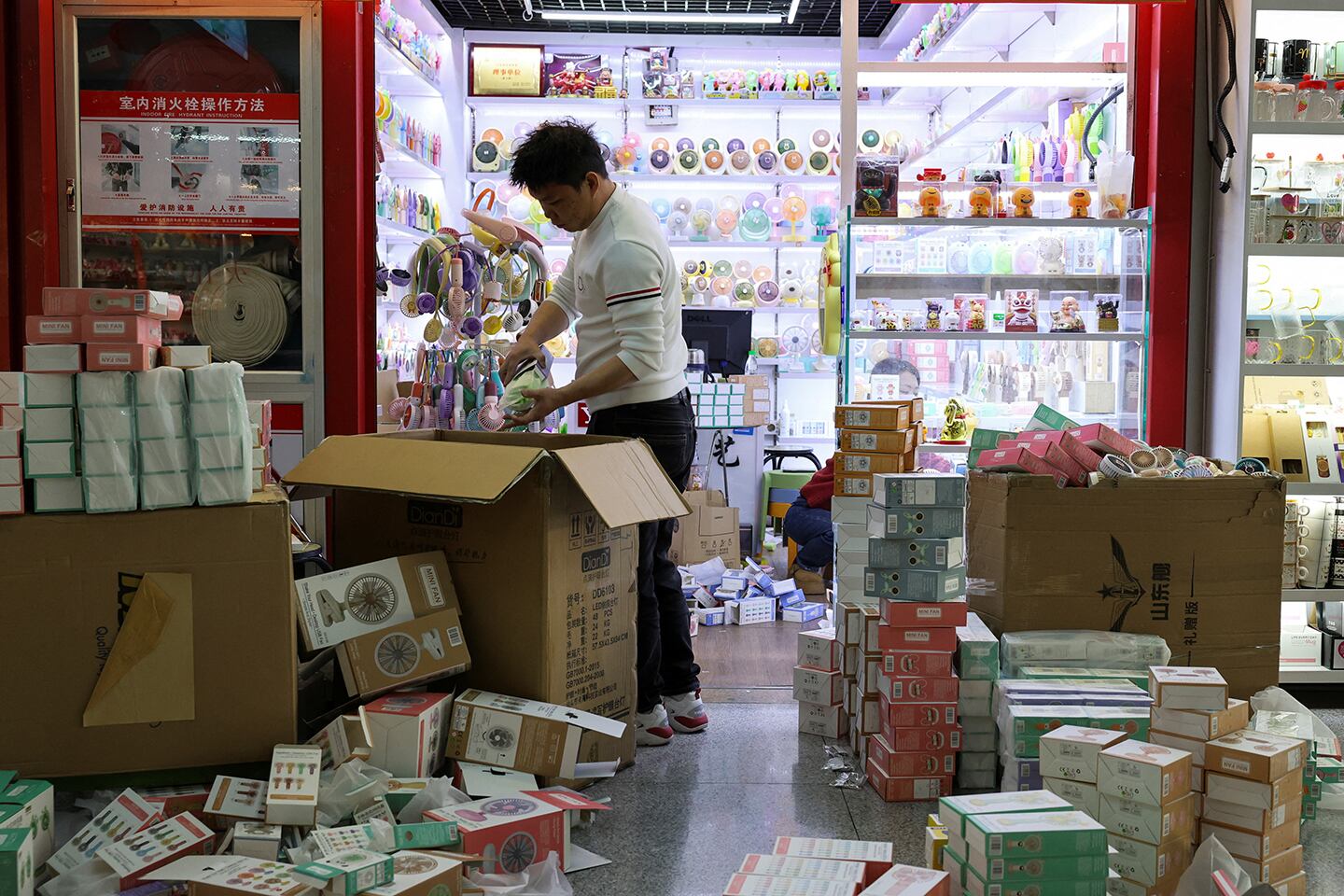Updated April 7, 2025, at 5:40 p.m. ET
U.S. President Donald Trump threatened Monday to nearly double already hefty tariffs on China in an escalating trade war between the world’s two leading economies that is impacting Chinese manufacturers amid a collapse in global stock prices.
Trump issued his warning on social media after China announced it was imposing a 34 percent tariff on all U.S. imports. That was in retaliation to Trump earlier slapping 20% tariffs as punishment for fentanyl trafficking and another separate 34% tariffs announced last week when the U.S. president took aim at a wide array of global trading partners, roiling international markets.
Despite sinking U.S. and global stock indices, Trump doubled down on Monday, threatening an additional 50% tariffs on China from Wednesday. If implemented that would bring U.S. tariffs on imports from China to reach a combined 104%.
Writing on the Truth Social platform Trump said, “if China does not withdraw its 34% increase above their already long term trading abuses by tomorrow, April 8th, 2025, the United States will impose ADDITIONAL Tariffs on China of 50%, effective April 9th.”
The Chinese Embassy in Washington accused the U.S. putting “America first” over international rules.
“This is a typical move of unilateralism, protectionism and economic bullying,” embassy spokesperson Liu Pengyu said in an email response to questions from RFA. “We have stressed more than once that pressuring or threatening China is not a right way to engage with us. China will firmly safeguard its legitimate rights and interests.”
The impact of the unfolding trade war is already being felt in China.
The head of a company that exports electronic products like Bluetooth headsets from Guangzhou, a major trading and manufacturing hub in southeastern China near Hong Kong, told RFA Mandarin that most companies in surrounding Guangdong province that trade with America have stopped accepting U.S. orders due to the new tariff barriers.
“They have stopped and are waiting to see how serious the situation will develop. At present, we know that Guangzhou and Guangdong’s (foreign trading companies) are temporarily not accepting orders,” said the company head, Ms. Gong, who like other Chinese sources in this article would only be identified by a single name.
She added that the U.S. tariff hikes were also impacting companies with offshore operations in countries like Vietnam, which were also slapped with high tariffs by the U.S. She cited the example of a Hong Kong company that had just built a factory in Ho Chi Minh City and was recruiting workers.
“They had just built a factory in Vietnam and were preparing to start business in the past two days. But now the U.S. has increased tariffs to 46% even in Vietnam, so you can’t avoid the high tax rate, and the previous investment is useless now,” Ms. Gong said.
Mr. Zhu, an e-commerce businessman in Jiangsu province, told RFA that high U.S. tariffs could bankrupt a large number of e-commerce companies in that province and Guangdong province. “There is basically no profit and it is impossible to do business,” he said.
On Monday, a commentary in the People’s Daily, a mouthpiece of China’s ruling communist party, said the tariffs would have a negative impact on China’s exports in the short term. However, the article emphasized that China is an economy capable of resisting strong pressure and predicted that “the sky will not fall.”
Meanwhile, Taiwan’s President Lai Ching-te said that Taiwan has no plans to retaliate with tariffs of its own against the U.S., and that Taiwan companies’ investment commitments to the U.S. would not change as long as they are in line with Taiwan’s national interests.
RFA Mandarin journalist Lucie Lo contributed reporting. Edited by Mat Pennington.
Updated with response from Chinese embassy.

